
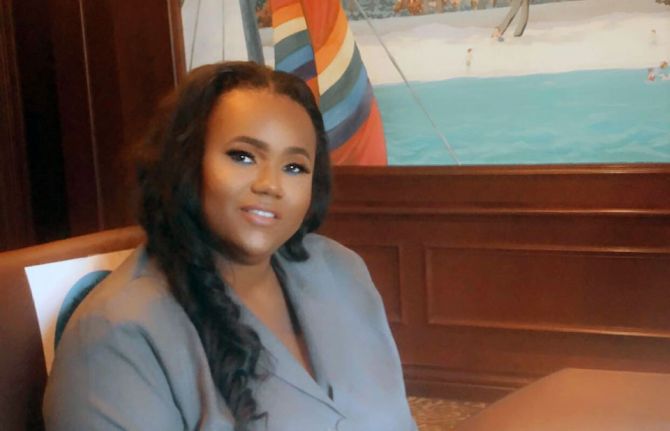
Feature Story
New study recommends strategies to serve the under-protected Caribbean transgender community
01 April 2021
01 April 2021 01 April 2021On International Transgender Day of Visibility (March 31), the United Caribbean Trans Network (UCTRANS) launched the results of its survey Over-policed, Under-protected: The Experiences of Trans and Gender Diverse Communities in the Caribbean.
The study was conducted in 2020 with the support of OutRight Action International. It features feedback from transgender and other gender diverse respondents from 11 countries, garnered from surveys, individual interviews and focus group sessions.
Respondents identified the inability to change their gender marker, employment discrimination and discrimination in health services as the top challenges facing the community.
Except for Cuba, no Caribbean country allows transgender people to modify their gender on official identification.
“Gender identity recognition is important,” said Alexus D’Marco, UCTRANS’ Executive Director. “Every aspect of a trans person’s life—access to education, employment, housing, and healthcare—depends on their ability to show a valid identity card or documentation that aligns with their gender identity and expression.”
“It is beyond hormones,” said Yaisah Val of Community Action for the Integration of Vulnerable Women in Haiti (Action Communautaire pour l’integration des Femmes Vulnerable en Haiti, or ACIFVH). “We need legal recognition and documents.”
Forty-two percent of the study’s respondents indicated that they were currently unemployed. According to the report, discrimination and the lack of workplace and social protections compound this issue.
“We had someone who was working with the government and told they had to go home. They said they didn’t employ ‘she’, they employed ‘he’,” said Brandy Rodriguez of the Trinidad and Tobago Transgender Coalition, pictured above.
Around four of five respondents (78%) reported having experienced depression or anxiety. But just one-third (32%) of those who were receiving accessed health services said that it was trans-affirming or at least trans-competent.
HIV prevalence is disproportionately high among Caribbean transgender people—51% in Jamaica, 28% in the Dominican Republic, 8% in Guyana and 3% in Cuba. In 2019, 5% of new HIV infections in the Caribbean were among transgender people.
“The cycle of displacement contributes significantly to this HIV risk,” Ms. D’Marco said. “If you are thrown out of the at an early age, experience gender-based violence and find yourself sleeping on beaches or the streets, you are more likely to have sex for a meal or a place to stay. Someone with education, access to housing and healthcare would be less likely to contract HIV.”
Responding to HIV in the trans community calls for increased investments in psychosocial support. Ms. Rodriguez who is a peer navigator for transgender people accessing HIV treatment in Trinidad and Tobago says COVID-19 has increased the proportion of her clients who do not have money for transportation, food and housing. A Guyanese respondent said many of her friends committed suicide due to being unable to cope with their HIV status.
Trans advocacy in the region has burgeoned over the last decade with important strides made toward increasing public awareness and political will. Ms. D’Marco credits RedLacTrans, the regional transgender network for Latin America and the Caribbean, with helping to build advocacy capacity in the Caribbean. In many countries activists and community organizations have scaled up public awareness and political engagement efforts.
UNAIDS is supporting this movement in different ways. UNAIDS Jamaica helped TransWave develop the Trans and Gender Non-Conforming National Health Strategy, a five-year rights-based road map for advancing the community’s health and well-being. UNAIDS Caribbean has collaborated with the Caribbean Vulnerable Communities Coalition, the Caribbean Broadcasting Union, the Caribbean Media Workers Association and the University of the West Indies Rights Action Project to conduct hands-on regional and national journalist trainings on how to cover transgender people and their issues responsibly. UNAIDS Caribbean has also supported community engagement and strategic communications around two successful strategic litigation cases challenging discriminatory laws that affect LGBT people, including a colonial-era crossdressing law in Guyana.
“As we increase our focus on achieving excellent HIV prevention, treatment and human rights outcomes for all key population groups, it is critical that we address the unique challenges facing the Caribbean transgender community,” said Dr. James Guwani, UNAIDS Caribbean Director. “We need more strategic information, more investments in community-based services and comprehensive strategies to increase transgender people’s access to education, employment, justice and healthcare.”
Related

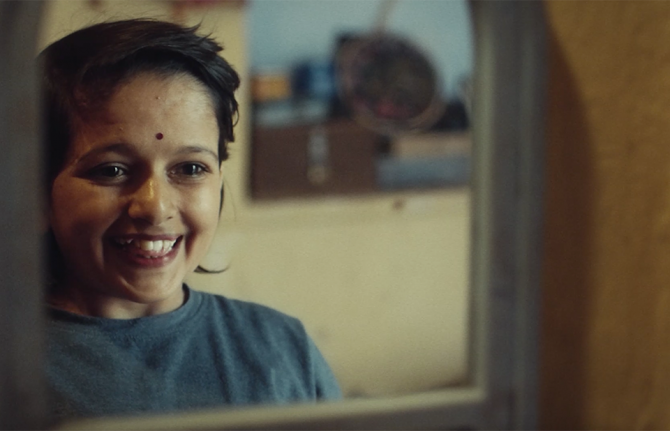
Feature Story
(Wo)man in the Mirror: seeing your true self
31 March 2021
31 March 2021 31 March 2021The night before filming began, the producer, Swati Bhattacharya, spent long hours with one of the actresses to make sure she understood the spirit of her movie.
“Because of COVID-19, I could not join, so we spoke on the phone and I told her that using no words she had to convey fright followed by acceptance,” Ms Bhattacharya said.
The film, the Mirror, portrays a young boy who is pouting and opts out of playing with other children during an Indian kite festival. His mother eggs him on, but he sneaks off downstairs alone. He drapes himself in a woman’s scarf and smiles as he sees his reflection in a mirror.
Moments later, his mother and his grandmother catch him dancing dressed up. The music stops and the women stare at the boy. A few seconds of dread pass by and suddenly the women join him.
“You see, this story plays out on many levels,” Ms Bhattacharya said. “The broad point is we have to accept children as they are and, in this case, build up their confidence.” She pointed to the fact that 98% of transgender people in India leave their homes or are thrown out. Inevitably, many live on the street with no money or education, often relying on sex work.
“Visibility is also an important thing,” the long-time advertising executive said. “Either you dislike the body you live in or you hate the society that you live in.” She wanted to capture the pivotal moment of self-recognition. Often, she explained, we look at children as our projects and want to make them extrovert and studious and obedient, refusing to see them for who they are and how they want to grow up.
“I wanted to show how they (transgender people) are seeing what they want to see and not the way the world sees them,” Ms Bhattacharya said.
Quoting an often-used phrase, she added, “It is easier to accept a child than mend a broken adult.”
In her opinion, most adults have been battered and bruised in some way or another, but transgender people in her country and across the world particularly suffer—from homelessness, from sexual violence and from mental illness.
Statistics show that transgender teenagers are much more likely to attempt suicide than teenagers whose identities match what is written on their birth certificates. In addition, transgender people face discrimination and in certain countries can be arrested. And transgender women have some of the highest rates of HIV, up to 40% in some cases.
Ms Bhattacharya knows these grim figures all too well. One of her earlier advertising campaigns focused on challenging long-time traditions of exclusion. Her team took a celebration traditionally restricted to married women and opened it to all women.
“As an ad person, I realized that we were using the cookie cutter version of an ideal woman, when, in fact, women are very diverse,” she said. Chuckling, she said that she realized that for years she had not catered to consumers like herself. That drove her to get to know more women and seek out their stories.
Not only did the Sindoor Khela campaign win accolades and awards, it opened her eyes to the diversity and also the many divides. “Married vs unmarried women, mothers vs non-mothers, divorcees vs widows, etc.,” Ms Bhattacharya said.
She wanted to bring these factions together and stressed that sisterhood is an untapped resource. Her film, the Mirror, alludes to this.
“In a way, the mother is aspirational, she is making the decision to accept her son and turning it into a celebration,” Ms Bhattacharya said. “The film has a strong feminist agenda because the two women are like a cloak, or two stage lights if you will.”
Tea Uglow, above, described the film as brazen. “Ultimately it is a fairy tale and we know it is a fairy tale and yet you wonder, what is really stopping this from being perfectly fine?” As a transgender woman based in Australia she wishes families would react just like this. What also struck her about the movie is that it has no negative emotional tones. No rage, no fear. “No one has any reason to fear a trans child… yet we are told to again and again.”
For Jas Pham, above, a transgender woman living in Bangkok, Thailand, the video struck a chord. “Basically, I teared up watching the video. It reminded me of my childhood,” she said.
She said that she focused on the child, but afterwards thought more about the mirror. “It is just a reflection; you see yourself and there is no judgement,” she said, adding that this is a powerful message of recognition and acceptance to families of transgender and gender-diverse children around the world.
Cole Young, a transgender American man, knows that parents do not always embrace their children in this open, accepting way, but he likes the positive, happy feel of the movie. “We know the bad reactions, we’ve experienced them, so we don’t need to re-traumatize trans people.”
Both work for the Asia Pacific Transgender Network, a nongovernmental organization pushing for the rights of transgender and gender-diverse people. They agreed that even though the film is filmed in India, the message is universal.
Keem Love Black, above, a Ugandan transgender woman, said the film resonated with her because at the same age she lived similar moments, and still does to this day. “I have mirror moments all the time, especially when I am going out,” she said.
Ms Black runs Trans Positives Uganda, a community organization that cares for transgender women sex workers and refugees who are living with HIV. She has used social media to raise awareness about issues concerning lesbian, gay, bisexual, transgender and intersex (LGBTI) people because few people dare speak out. Uganda criminalizes homosexuality, so she deals with persistent homophobia and transphobia among her peers and community and in health-care facilities. Reflecting upon the movie she said, “We should take up all the opportunities that come our way for visibility.”
UNAIDS is releasing the Mirror on the International Transgender Day of Visibility. Gender diversity is not a lifestyle choice but an inherent right of all people. Gender stereotypes, especially towards LGBTI people, lead to stigma and discrimination. This is more pronounced in children and adolescents, as diversity among them is not commonly understood and society puts massive pressure on them to conform to their assigned gender norms.
Above, Kanykei (who preferred not to give a last name) is one of the few transgender people who lives openly in Kyrgyzstan’s capital of Bishkek. She recalls putting on scarves when little, a bit like the boy in the film. However, her family did not take it seriously. Ever since she can remember, before she realized the difference between boys and girls, she felt like a girl. “They would laugh as in a small child is playing, but, over time, it was perceived differently, both in the family and in society,” she said.
She had to adjust her behaviour and behaved like a man. Before her grandmother’s death, five years ago, she started to consider transitioning, but she could not tell her the truth. “I lived with this gender identity conflict all the time until I decided to make the transition and live as I feel,” she said.
Ariadne Ribeiro, above, a Brazilian transgender woman, likens her own mirror moment as trying to search for herself within. That said, it scared her too. “There was always a very big fear that people might see me through the mirror as I saw myself and my secret would be revealed, and I was not ready,” she said. “I feel that the video brings a reality closer to the ideal of acceptance, something that I, at the age of 40, have not experienced.”
As a long-time transgender activist and now a Community Support Adviser at UNAIDS, Ms Ribeiro said that change is happening, but there needs to be more engagement.
That is exactly what Ms Bhattacharya aimed to show in her film. For her, when the work gains traction, that is what makes it all worthwhile. She also stressed that the “growing pains” that so many of her gender fluid friends have endured over the years are real. “I wanted to open the gates and get people to carry on the dialogue.”
Watch the film. Join the campaign #Seemeasiam on this #TransDayOfVisibility #TDOV2021.
Related
 Government ensures continuity of treatment in Malawi
Government ensures continuity of treatment in Malawi

10 February 2025

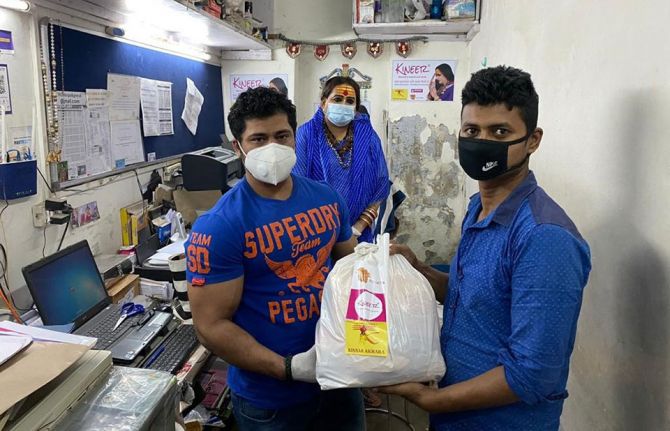
Feature Story
Solidarity fund helping transgender people during the COVID-19 pandemic
30 March 2021
30 March 2021 30 March 2021As the COVID-19 pandemic continues, the ongoing global health crises and resulting economic consequences of the measures imposed to contain COVID-19 have highlighted the vast and rapidly growing inequities threatening the livelihoods of the most vulnerable.
This has been especially true for transgender people around the world, who have disproportionally borne the socioeconomic hardships of the pandemic. Speaking about the transgender community in India, transgender activist Laxmi Narayan Tripathi said, “People didn’t have money to pay rent. Not even to buy rice. People may die of COVID-19, but they may die of hunger even sooner.” The Kineer Services, an initiative created by Mrs Tripathi focusing on creating employment for the transgender community in India, organized and created a platform to provide food to the transgender community across several states in India in order to tide people over the immediate hardship. Sustainable support, however, is a challenge. “What else would be better than us empowering our own people, those that are living on the margins of society, to become entrepreneurs?” Ms Tripathi added.
Recognizing that access to finance is a critical factor towards supporting vulnerable populations to survive the immediate crisis and the impact of lockdowns, UNAIDS and partners launched the Solidarity Fund for Key Populations Social Entrepreneurships and will support eight proposals for transgender-led social enterprises in its pilot phase. The pilot is being rolled out in Brazil, Ghana, India, Madagascar and Uganda. It will finance a series of selected social enterprise grants led by key populations, which will be announced in early April.
“The solidarity fund is a small step towards addressing the economic inequities faced by transgender communities. It is about building and supporting entrepreneurs from within the transgender community to address the extreme discrimination and vulnerability that the transgender community faces,” said Pradeep Kakkattil, Director, Office of Innovations, UNAIDS
The variety of social enterprises received through the solidarity fund’s first proposal call from transgender communities is a testament to the ingenuity of community-led organizations in the face of special hardship. In Uganda, Tranz Network Uganda has established the Transgender Resilience and Economic Empowerment (TREE) pilot programme in order to contribute to the economic transformation of transgender people in Uganda. The TREE project will build social capital and the resilience of transgender people in Uganda through the formation of saving groups, the promotion of financial inclusion, entrepreneurship, vocational skills development and linkages to other social economic empowerment activities.
The selected applicants for the pilot phase of the solidarity fund have shown how civil society organizations and networks are playing a critical role in providing essential social safety nets for vulnerable communities and transgender populations during the pandemic.
In Ghana, the Hope Alliance Foundation (HAF) and the OHF Initiative have been working together for the past nine years on implementing numerous HIV-related programmes that include emergency support, home-based care, capacity-building and peer support. As the ongoing pandemic and the subsequent lockdowns continue to heavily impact the Ghanaian labour market, particularly vulnerable workers, HAF and the OHF Initiative are aiming to address the resulting economic challenges through capacity-building programmes and the implementation of income-generating activities. Through the Community Economic Empowerment Program, the two organizations will work with lesbian, gay, bisexual, transgender and intersex people and people living with HIV to provide them with vocational skills training and to revitalize small- and medium-sized business that have been adversely impacted by the economic downturn due to COVID-19-related lockdowns.
In Bihar, India, Reshma Prasad sees a unique opportunity for the transgender community, which has developed unique skills in dancing, singing, art and entertainment within the local culture and across the country. Through Nachbaja, Ms Prasad wants to bridge the current gap between transgender communities and digital media by providing a centralized online platform on which they can market their skills, allow people to directly connect with the artists themselves and provide the artists with an opportunity to receive fair pricing and wider exposure for their services. Nachbaja.com has already registered more than 1000 artists for its platform and aims to grow the platform to reach all of India.
In Brazil, Grupo De Trabalhos em Prevenção Posithvo (GTP+) has been supporting people living with HIV by providing them with food security since 2016 through their Cozinha Solidaria (Solidarity Kitchen). Noticing a vast and sudden drop of the income of their beneficiaries in the past year due to the ongoing pandemic and related lockdowns in Brazil, GTP+ saw a unique opportunity to combine their knowledge of confectionary and gastronomy with entrepreneurial ventures for their beneficiaries. Through Confeitaria Escola–Cozinha Solidária (Confectionary School–Solidarity School), the organization will aim to commercialize and grow its operations by creating confectionary and food baskets for commemorative occasions while proving relevant entrepreneurial training guidance for all members.
“UNICEF recognizes the critical importance of HIV prevention among young key populations if we are to end the AIDS epidemic. We believe that this can be best accomplished by empowering communities directly. The solidarity fund is a unique resource that will do just that. For young people, these investments will yield lifelong opportunities,” said Chewe Luo, Associate Director and HIV Programme Chief, United Nations Children’s Fund.
As transgender communities become increasingly marginalized, especially during the ongoing global pandemic and subsequent lockdown measures, UNAIDS is committed to eradicating all forms of discrimination faced by transgender communities and stands behind them to drive workplace equality forward.
Our work
Related
 Government ensures continuity of treatment in Malawi
Government ensures continuity of treatment in Malawi

10 February 2025

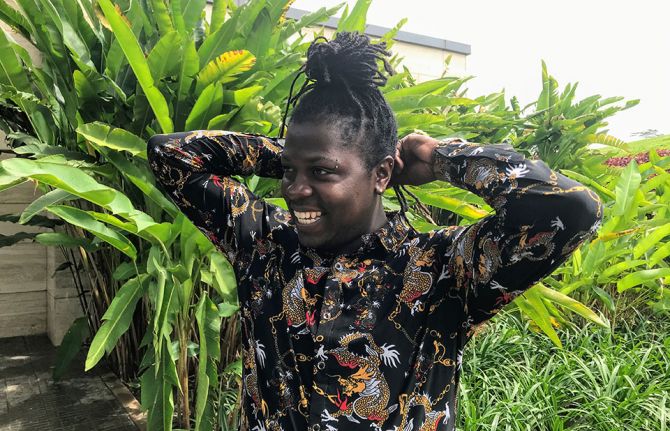
Feature Story
Fighting transphobia and violence one social media post at a time
30 March 2021
30 March 2021 30 March 2021“If you want to know that [Keem] is a man, just snatch away his phone and run,” taunted an Internet troll under Keem Love Black’s new profile picture on Facebook.
As a transgender woman living in Uganda, Ms Black is no stranger to the homophobia and transphobia that the lesbian, gay, bisexual and transgender (LGBT) community receives in the east African country.
“There is a lot of cyberbullying,” Ms Black says; for example, people often attack her for posting pictures of her in dresses and makeup.
Trolling is one motivation for Ms Black’s social media activism. She runs Trans Positives Uganda, a community organization that cares for transgender women sex workers and refugees who are living with HIV.
The online abuse mirrors the violence most transgender women experience in Uganda at the hands of their partners and even health-care providers. The marginalization has created a myriad of issues for transgender people in the country.
“I have been persistent on social media because I wanted to tell the world about transgender issues,” she says.
HIV disproportionately affects female sex workers and transgender women. The 2020 Global AIDS Update reports that in eight sub-Saharan countries nearly one in three transgender women said they had been physically attacked and 28% had been raped.
It is not only sexual violence that Ms Black relates, but also intimate partner violence.
“Our boyfriends really violate us,” Ms Black says.
She adds that transgender sex workers also meet the same fate at the hands of clients. However, while she believes that violence against transgender women needs to be addressed, the criminalization of LGBT people and sex work in Uganda stops survivors from speaking out.
“Sex work is illegal and our kind of sex is very, very illegal. You might end up getting arrested,” she says.
The stigma and discrimination often follows transgender people to consulting rooms at health facilities, where, while seeking treatment, they can be degraded and shamed.
“You tell a doctor, “I have anal gonorrhoea” and they will all be shocked. They'll call everyone, all the doctors, to see because they don’t believe in anal sex. They’ll say it’s against their religion,” says Ms Black.
When Ms Black lost an HIV-positive transgender friend to medical negligence in 2013, it was the final straw. Her friend was classified as a gay man, resulting in her not accessing health care that could have saved her life.
“I was like, “Okay, I have to start a campaign on social media” because people only knew about lesbians and gays,” Ms Black says.
That campaign grew from about 100 followers on Facebook to 50 000 followers today.
Ms Black’s Facebook page is mix of speaking about contemporary Ugandan issues, advocating for transgender people and fashion.
Despite her success on Facebook, Ms Black is turning to other social media platforms. “I am starting to use my Instagram page to advocate and sensitize people on transgender and health issues. I have noticed that social media is strong for advocacy,” she says.
In the last year, COVID-19 lockdowns had a big effect on women and girls and key populations. Sex workers, transgender men and women, people who use drugs and gay men lost livelihoods, faced violence and often are scapegoated as the transmitters of COVID-19.
“We are still suffering as sex workers who used to get clients from bars and clubs. The president hasn’t decided when bars will officially open yet,” she says. “During the lockdown we were all depressed; it came as a shock to us and we were not prepared at all. Some of us had a few savings, others didn’t have anything.”
Ms Black says people living with HIV faced many challenges in obtaining their treatment as public transport had stopped. “Many people stopped taking their HIV treatment,” she observes.
As with many communities across eastern and southern Africa, the transgender sex worker community displayed remarkable resilience in the face of adversity, somehow surviving the loss of livelihoods and food insecurity.
Without any formal financial support, Trans Positives Uganda teamed up with a sex-worker-led organization called Lady Mermaids, started a GoFundMe page and raised more than €5000 to buy and supply food to their members. They pulled through and, “Now that the lockdown has been eased, we are slowly getting back on our feet,” says Ms Black.
Through it all, Ms Black keeps it playful and often laughs at her naysayers. However, the memes on social media are not just fun and games for her. “Activism happens in many ways,” she says.
Find her on Facebook here and Instagram here.
Our work
Region/country
Related

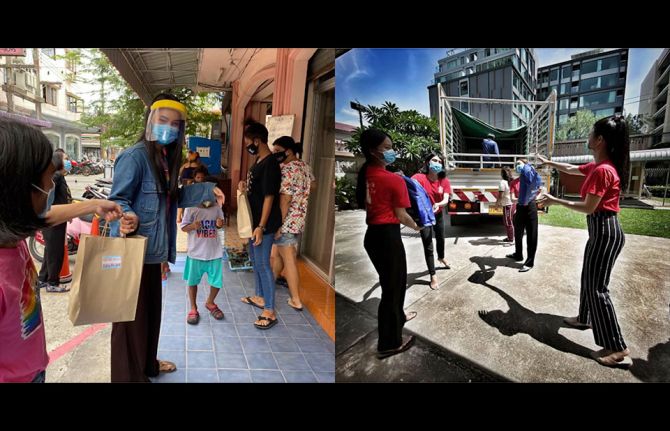
Feature Story
Transgender communities in Asia and the Pacific respond to COVID-19 through activism
30 March 2021
30 March 2021 30 March 2021The global health emergency caused by the COVID-19 pandemic has brought existing inequalities to the forefront, has exposed transgender and gender-diverse communities to a heightened risk of social exclusion, stigma and discrimination, has reduced access to health care and has caused financial insecurity.
“COVID-19 has created an existential threat to many transgender people in Asia and the Pacific. But trans-led organizations and groups have found creative ways to assist their communities, to offer support against social isolation and to support trans and gender-diverse people, especially those unable to work due to COVID-19. We recognize the importance of trans leadership and their response to communities greatly affected by the pandemic,” said Joe Wong, Executive Director of the Asia Pacific Transgender Network (APTN).
When COVID-19 reached India, Maya, a young transgender woman living with HIV volunteering at Basera Samajik Sansthan, a transgender-led community-based organization in Uttar Pradesh, was living in rented accommodation after being rejected by her family. “During the COVID-19 outbreak, my friends and I had to leave our homes because we couldn’t afford the rent,” she said. Basera Samjik Sansthan provided her and her friends with shared accommodation and supplied them with food and medicine. The community-led organization also established a peer support programme to help homeless transgender young people and provide them with hand sanitizer, masks and access to free HIV and COVID-19 testing.
Her testimony is part of a collection of stories published in Dignity amidst COVID-19: Trans Youth Leading The Response, developed by APTN and Youth LEAD, and supported by the UNAIDS Regional Support Team for Asia and the Pacific, to bring visibility to the voices and experiences of transgender and gender-diverse youth leaders and showcase the efforts of transgender-led organizations throughout the region during COVID-19.
“Many transgender people living with HIV were not able to afford transportation to medical centres to receive treatment during the COVID-19 outbreak,” said Della, a young transgender woman living with HIV from Indonesia who works for the Srikandi Sejati Foundation, whose testimony is also collected in the Dignity amidst COVID-19 series. The Srikandi Sejati Foundation established a community support programme that covered transport costs to medical centres to ensure that transgender people could access HIV services. It also implemented local workshops to support and empower transgender women in five districts in Jakarta with knowledge on COVID-19, HIV, mental health and adherence to antiretroviral therapy.
In Thailand, measures taken to curb the spread of COVID-19 and the consequent decline in tourism have forced many entertainment shows and venues to close, leaving many transgender people out of work. “The decline in tourism has heavily affected not only businesses but sources of income for transgender people. Many trans women have returned to rural areas to be with their families due to loss of employment,” said Garfield, a young transgender woman working for the Sisters Foundation, a transgender-led organization in Pattaya that provides a range of HIV services to transgender people, including check-ups for general health, HIV and sexually transmitted infections, hormone therapy and harm reduction. As described in the collection of stories, since the beginning of the pandemic, Garfield and other volunteers have been at the forefront of the COVID-19 relief efforts, distributing food supplies and hygiene products to transgender women.
Basera Samajik Sansthan, the Srikandi Sejati Foundation and the Sisters Foundation are all beneficiaries of the COVID-19 Community Support Fund established by APTN to support transgender people and community-based organizations to ease the burden of the COVID-19 pandemic in the region. APTN provided grants to 22 transgender-led and transgender-inclusive community groups and organizations across 14 countries, enabling them to assist more than 2300 people across Asia and the Pacific. The grant supported various initiatives, including access to essential supplies, food and personal protective equipment, social and mental health relief support, financial assistance and funding support to sustain organizations.
The community-led initiatives and outcomes of the response to COVID-19 are summarized in the Trans Resilience Report—Stories of Hope, Pain, and Survival from the Trans Movement during the COVID-19 Pandemic, developed with financial support from the UNAIDS Regional Support Team for Asia and the Pacific, and in APTN’s multi-week social media campaign.
“On International Transgender Day of Visibility, UNAIDS recognizes the indispensable contributions made by transgender communities in the HIV and COVID-19 response. The leadership and resilience of transgender and gender-diverse communities continues to be an inspiration for our region,” said Eamonn Murphy, Director of the UNAIDS Regional Support Team for Asia and the Pacific. UNAIDS will continue to work with APTN and transgender-led organizations to work towards a region where transgender people and gender-diverse people can thrive as equals.
Our work
Region/country
- Asia and Pacific
- Australia
- Bangladesh
- Bhutan
- Brunei Darussalam
- Cambodia
- China
- Democratic People's Republic of Korea
- Federated States of Micronesia
- Fiji
- India
- Indonesia
- Islamic Republic of Iran
- Japan
- Kiribati
- Lao People's Democratic Republic
- Malaysia
- Maldives
- Marshall Islands
- Mongolia
- Myanmar
- Nauru
- Nepal
- New Zealand
- Pakistan
- Palau
- Papua New Guinea
- Philippines
- Republic of Korea
- Singapore
- Solomon Islands
- Sri Lanka
- Thailand
- Timor-Leste
- Tonga
- Tuvalu
- Vanuatu
- Viet Nam
- Samoa

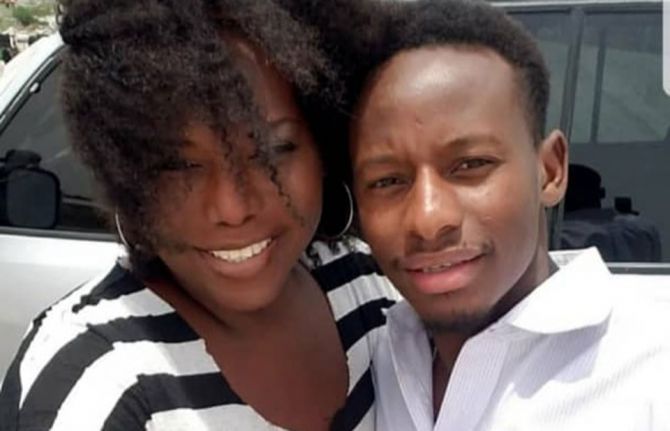
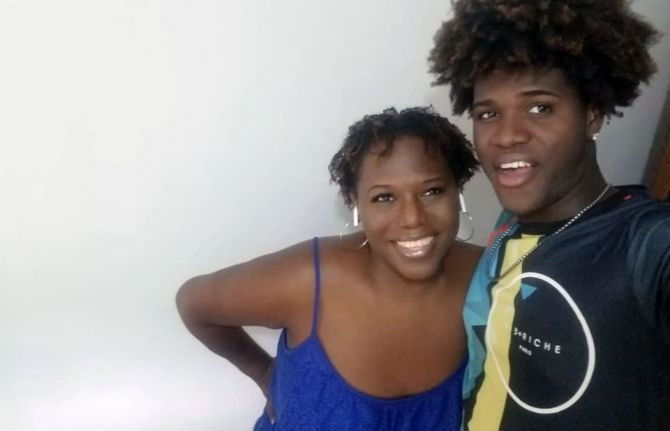
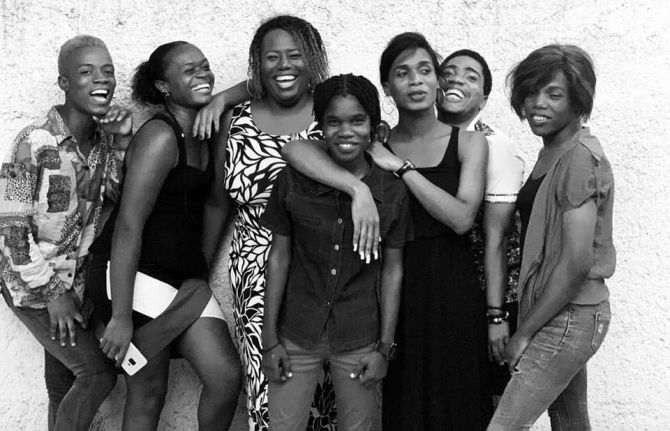
Feature Story
“Someone has to start”: how a Haitian transgender activist is inspiring hope through visibility
09 November 2020
09 November 2020 09 November 2020Haiti’s first safe house for transgender people opened last week. Kay Trans Ayiti launched with the snip of a red ribbon and cheers from a circle of activists and residents. The group took turns taking pictures between bobbing pink and blue balloons tied to the veranda.
The triumphant moment came during a tough time. Asked how transgender people have fared in Haiti during COVID-19, home founder Yaisah Val was emphatic. “When the rest of the population has a cold, the trans community has pneumonia. Just imagine that with the hunger, poverty and meagre resources in Haiti, we are always on the outside,” she says.
In many ways, Ms Val is not as shut out as the people she serves. Haiti’s first publicly open transgender woman introduces herself as a mother of two and a wife. She has a degree in education and clinical psychology. She was a teacher and school counsellor before becoming a full-time community mobilizer, activist and gender identity spokesperson. During what she calls her stealth years, she was easily accepted as a woman.
Born in the United States of America to Haitian parents, she has had the benefit of a stable home, supportive teachers and a wildly loving grandmother.
“If you are going to be a sissy you will be the best sissy there is because you are mine,” her granny told her when she was a boy named Junior.
This is an anomaly. According to the United Caribbean Trans Network, transgender people in the region are far less likely to be supported by family, complete their secondary education and be employed. They are more likely to be homeless, to sell sex to survive and to face extreme violence. All this sharply increases the community’s HIV risk. A recent study found that transgender women in Haiti had an HIV prevalence of 27.6%—14 times higher than the general population.
But notwithstanding her “privileged” life, Ms Val’s 47-year journey has been fraught.
From when she was two or three years old she knew she was a girl. The gender policing from relatives was immediate and incessant: “Straighten up that boy. You can’t let him grow up like that.” At seven she was admitted to Washington Children’s Hospital with self-inflicted wounds to her genitals. Puberty was, “hell … a lot of confusion and self-hate.”
About 20 years ago she became herself during the Haitian Carnival. She braided her hair, slipped into a dress and boarded a loud, colourful tap-tap bus with her friends. One man flirted. He called her pretty and opened doors. She felt like Cinderella.
“That boy eventually found out and beat me within an inch of my life,” Ms Val remembers. “Whether you are upper class or middle class or on the streets, as long as you are trans it does not matter. Once you disclose, all respect is gone … you are just this thing. That one word disarms you of all humanity in people’s eyes.”
Transitioning offered a sort of freedom, “I was living and being seen as who I am, who I had always been.” But the fear of being assaulted or excluded made her identity a stressful secret. Old boyfriends did not know she was transgender until she came out years later. She only disclosed to the man who would become her husband after they had lived together for a year and were on the brink of getting married.
“I don’t recommend people do that,” Ms Val says again and again, referring to transgender people hiding their gender identity from romantic partners. “It can be violent. It can be dangerous.”
In her case it worked out. Her partner decided that she was the same person he knew and loved. Three years ago, the story repeated when she disclosed to her children.
“I was just surprised,” her son, Cedrick said. “I was shocked in a good way. They’d slowly started educating me over the years, so I understood what it meant. Ever since then the whole mother/son bond went to a new level for both of us. It filled in all those gaps. Now everything made sense, like her childhood stories.”
Coming out to those closest to her has opened the floodgates to activism. In 2016, Ms Val became the first person in Haiti’s history to publicly identify as a transgender person. She has been a key partner for UNAIDS Haiti and the island’s lesbian, gay, bisexual, transgender and intersex (LGBTI) people organizations. Last year she participated in a national dialogue on LGBTI rights. Together with her husband she started taking in homeless transgender people. That paved the way for Kay Trans Ayiti, which now houses 10 transgender people. Fundraising is under way for a programme of psychosocial support, hormonal replacement legal advice and job training. One of their employment initiatives is a food cart. Some of their residents are living with HIV. They are supported to remain adherent to their antiretroviral treatment.
Ms Val knows first-hand how terrifying it is to access sexual and reproductive health care as a transgender woman. She recalls the experience of going to a gynaecologist in Haiti to get a check-up related to her vaginoplasty. The doctor did not understand what “transgender” meant. That visit ended with the gynaecologist calling other doctors to gawk.
“I was a YouTube channel, a Google page … anything but a human being. I was upset. I was crying. This is why transgender people do not access health care! We have a lot of transmen with gynaecological issues who make herbal treatments rather than go to the doctor,” Ms Val says.
Her group, Community Action for the Integration of Vulnerable Women in Haiti (Action Communautaire pour l’integration des Femmes Vulnerable en Haiti, or ACIFVH), is working with two HIV clinics to sensitize health-care providers. Combatting the ignorance and conservatism is a tall task. Even after educational sessions some doctors and nurses have tried pushing their religious views on the trainers.
“I was lucky not to be hindered by transphobia and discrimination,” Ms Val reflects. “Imagine if I did not have a supportive grandmother, an education and opportunities. I would not have been the person you see now.
“If you throw a seed on concrete it is not going to thrive. Being trans is not the problem. It is the reaction people have to it: throwing them on the streets, not letting them work, not taking them into schools. We need to have a place in society. It is hard. It will take a while. But someone has to start.”
Our work
Region/country
Related

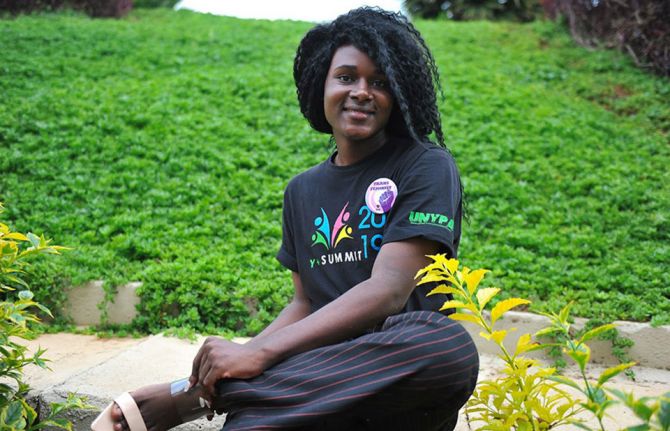
Feature Story
“I also need to be happy”: Anna Morena’s story
25 June 2020
25 June 2020 25 June 2020Officially, she calls herself Juliana, but she also goes by the name Anna Morena and has an organization of the same name—the Anna Foundation Uganda.
The small, youth-led organization promotes sexual and reproductive health and rights, HIV prevention, advocacy, research, entrepreneurship and fundraising for the transgender community in central Uganda.
As a response to the malnutrition experienced by transgender people because of the COVID-19 outbreak, the foundation has raised US$ 1600 from a private donor to support transgender people and their dependents with food relief, which has reached more than 200 people.
Members of the foundation volunteer their time to conduct referrals for mental health and supply medical services, including deliveries of treatment and hormone therapy to transgender people who cannot currently access facilities due to the COVID-19 pandemic.
Ms Morena named herself and the foundation in memory of a friend who moved to Kampala, the capital of Uganda, at the age of 16 years. She was working as a sex worker to survive, met a man in a nightclub one night and was found dead the next day.
“I thought that maybe I could be “Anna” too, because she had a dream—to live as a normal person,” said Ms Morena wistfully.
Ms Morena doesn’t like labels, but she refers to herself as a “trans girl” because she wants people to know that she’s “not just a sex worker.”
She is open about being a sex worker so she can encourage others to come out and speak about it. She also volunteers to educate people about being transgender, which she does “out of love.” The sex work is to put food on the table.
“Most of the trans women I know are doing sex work. They are usually between the ages of 16 and 25 years, a time when hormones are high and one’s understanding of sexuality and gender identity is still developing,” she said.
Globally, transgender people are 12 times more likely to become infected with HIV than the general population. Nineteen countries worldwide, including Uganda, prosecute and/or criminalize transgender people.
In their daily lives, transgender people experience exclusion from family and society, barriers to employment and extreme forms of sexual, physical, emotional and psychological violence. According to Ms Morena, the COVID-19 pandemic is making things worse.
“COVID-19 has led to an increase in gender-based violence and a scarcity in commodities such as condoms and lubricants. Most sex workers are still doing sex work so that they can survive and we are seeing a rise in infections,” said Ms Morena.
She said prices for essentials such as mobile phone data have risen, making it harder for community-based transgender organizations to stay connected to their members.
In the absence of funding for vocational training, the only choice for transgender people who want to make a difference is to volunteer, said Ms Morena, because there is limited donor funding for transgender organizations. “Donors are very specific about what they will support, meaning there is a lot of competition for funding,” she said.
In addition, there is limited data on transgender people in the eastern and southern African region and Ms Morena believes that donors are not primarily interested in funding community-led research. But, she said, research is critical. “It is a way to help our governments understand the specific needs we have; it helps influence change and policies.”
Influencing change is something that Ms Morena does every day. During workshops run by the foundation, in partnership with other transgender and female-led community organizations, she tries to educate people about what it feels like to live in a transgender body by getting them to draw a picture of their bodies on a piece of paper they place on top of their heads.
Drawing one’s body out of sight always guarantees that it comes out a mess. This is Ms Morena’s advocacy punchline.
She holds up the drawing and tells them, “This is the pain I have to go through daily. This is how the world sees a transgender person.”
“This is not the body I want. I want to transition, but I don’t have the support of my family. I honestly love them. At times I try to do what I can to make them comfortable, but I also need to be happy,” she said.
This is the reason why the transgender community is so important, said Ms Morena. Solidarity helps.
“Trans women need safe spaces, places to stay and access to mental health services,” said Ms Morena. “The Government of Uganda is not willing to facilitate such spaces, so community-based organizations must bring these services until the fight for decriminalization has been won.”
Our work
Region/country
Related

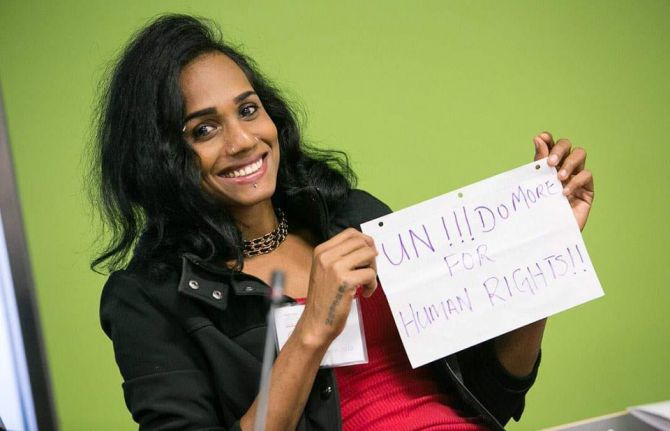
Feature Story
Mobilizing COVID-19 relief for transgender sex workers in Guyana and Suriname
02 June 2020
02 June 2020 02 June 2020Twinkle Paule, a transgender activist, migrated from Guyana to the United States of America two years ago. As the COVID-19 crisis deepened, she thought of her “sisters” back home and in neighbouring Suriname. For many of them, sex work is the only option for survival. She knew that the curfew would starve them of an income. And she was worried that some might wind up in trouble with the law if they felt forced to work at night.
After making contact with people on the ground, her concerns were confirmed. She made a personal donation, but knew it was not nearly enough.
“Being somebody who came from those same streets, I knew we had to mobilize to take care of our community. I know about lying down at home and owing a landlord … about getting kicked out because you can’t afford to pay rent,” Ms Paule said.
She collaborated with New York activists Cora Colt and Ceyenne Doroshow, founder of Gays and Lesbians in a Transgender Society (GLITS Inc), to start a GoFundMe campaign. After launching on 12 May they’ve already raised enough money to cover rent subsidies for one month for six transgender sex workers. The money has been forwarded to Guyana Trans United (GTU), the organization for which she worked as a peer educator when in 2015 she left sex work behind.
That she can now use her position of influence to mobilize emergency relief is itself a stunning success. When she migrated, she’d felt herself tottering on the brink of suicide. The emotional weight of exclusion and injustice was bearing down.
One successful asylum claim later, she’s now a full-time communications student at the Borough of Manhattan Community College. She completed her high-school education last year—something she hadn’t been able to do in Guyana. While studying she worked as an outreach officer for GMHC (Gay Men’s Health Crisis).
She seamlessly slipped into advocacy mode, addressing the city council last year about repealing New York State Penal Law § 240.37, a loitering law that is used to target transgender women. She immediately recognized that this was from the same tradition as the vagrancy laws she’d first been victimized by, and later fought against, in Guyana.
Ms Paule is acutely aware of how much her life prospects have changed due to migration.
“It just shows the difference it makes if somebody is given opportunities and the right tools to make other decisions in life. It showed me what I was lacking was adequate resources and the ability to go into an environment without having to worry about discrimination and violence. I am not saying everything is perfect here, but I don’t face the same level of injustice on a daily basis. I was able to access hormone therapy. And to me the most important thing,” she reflected, “is that I was able to go back to school.”
Her mother died when she was a child. Her father moved on with a new family. She was left in the care of his relatives. There wasn’t always enough money for her education. Some weekends she cleaned a church to earn some cash.
But poverty wasn’t the only challenge. Since she was very small she remembered feeling different. She did not have a label for what she felt, but instinctively knew it would not be accepted. At school she strained to stay under the radar. One day her heart skipped when a classmate said she sounded like an “antiman”—a Guyanese derogatory term for a gay person.
Over the years she repeatedly overheard adults in the household agreeing that she should be put out if she turned out to be gay. At 16 years old it happened. A relative spotted her “dancing like a girl” at a party. Now she was homeless.
Ms Paule sought refuge with other transgender women and, like them, used sex work to survive. The burgeoning regional movement to address the needs of vulnerable and marginalized communities had an impact on her life. From the newly formed Guyana Sex Work Coalition she learned about safer sex and accessed safer sex commodities. When some of her peers started going to conferences they found out for the first time that there was a word for their experience. They weren’t “antimen”. They were transgender.
But life on the street was brutal. If someone was robbed or raped they could not report the crime.
“The police tell you plain, “Why are you coming here when you know prostitution and buggery are against the law?”,” she remembered.
She said sometimes rogue police officers threatened to charge them and extort money from them.
Once the police locked up her and other transgender women together with men at the police station and threw condoms into the cell—a green light to the other detainees. She was a teenager at the time.
She accompanied a friend to the police station to make a domestic violence report one day. Instead a policeman told her, “You are involved in buggery. I am locking you up.”
In 2014, a group of them were arrested for sex work in Suriname. Among other indignities, a prison guard forced them to disrobe and squat outside their cell, in the presence of other detainees.
Seven years ago, one of her friends was killed, her body was thrown behind a church. There was no investigation.
Trauma after trauma. It takes its toll.
Even when nothing happens, there is lingering fear. Will I be put out the taxi? Will people insult me on the street? Will I be mistreated because of what I’m wearing?
“The girls take it like it’s their fault,” Ms Paule reflected. “Even in my personal experience I felt people had a right to do me things because I was not behaving in accordance with societal norms.”
Even as she stepped into advocacy, she didn’t feel whole. She attempted suicide once and began having a drink or smoke before turning up to work. Two years ago she was unravelling. Now she’s rallying forces in the service of her community.
Ms Paule credits the work of organizations like the Society against Sexual Orientation Discrimination and GTU for advancing the dialogue around inclusion in Guyana.
“What is still missing is safety and equity for the community,” she insisted. “We need a state response to say, “These people should be taken care of”. The trans community has no jobs, we are bullied out of school, we suffer police brutality. These things are wrong. We need more robust action from our elected officials.”
Our work
Related

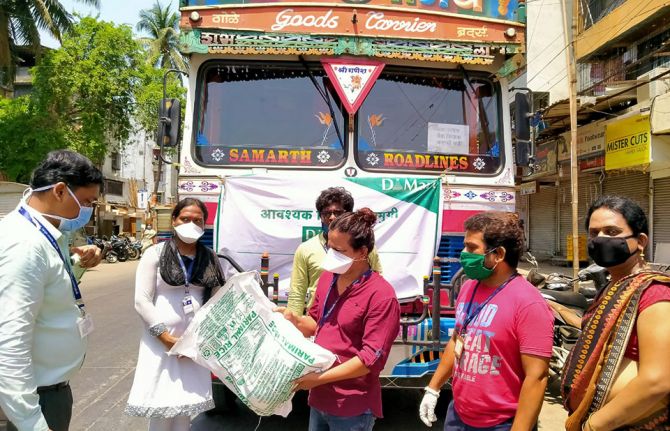
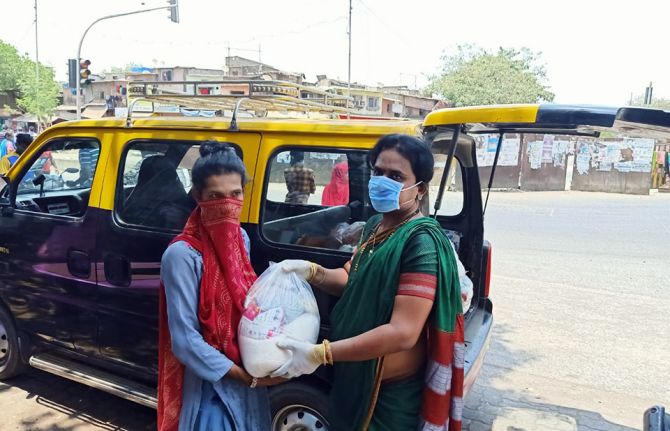
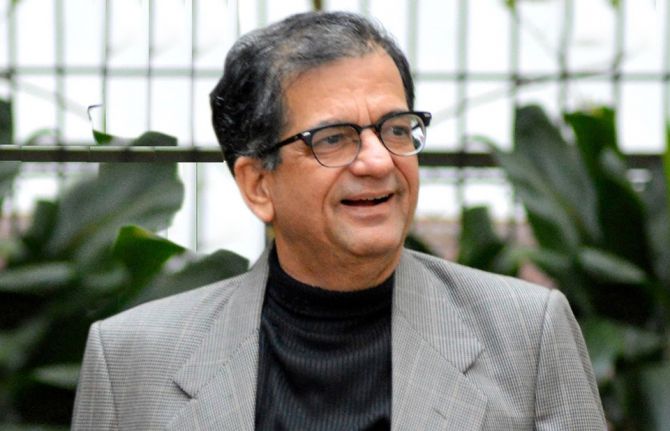
Feature Story
Let transgender people be in the picture
14 May 2020
14 May 2020 14 May 2020Relief work is not the Humsafar Trust’s specialty, but COVID-19 has changed that.
A few days after the lockdown measures in India went into effect, the Humsafar Trust’s teams received desperate calls from people with no place to live and no income, explained Vivek Anand, Chief Executive Officer of the Humsafar Trust, a lesbian, gay, bisexual, transgender and intersex (LGBTI) people community-based nongovernmental organization based in Mumbai, India. An urgent team meeting was called to determine what to do. “After much back and forth evaluating needs, we agreed, “Let’s start with giving people food support,”” he said.
They pooled money together among themselves and bought food and other essentials.
They then reached out to their communities, telling them that the Humsafar Trust had started an emergency COVID-19 fund. In three days, more than 700 people had asked for support. “With donations from communities, allies, businesses and some donor agencies, we have helped more than 2000 individuals with food, access to medical care, like HIV medicine, financial aid and applying for government support,” Mr Anand said, beaming as his air conditioner sent waves of cold air blowing through his small home office.
He feels that during the pandemic response the LGBTI community is being overlooked. “Seventy per cent of our community comes from lower socioeconomic backgrounds with no savings,” he said.
The bulk of the Humsafar Trust’s aid is focused on transgender people, who, he said, have been the hardest hit. “Not only do they usually survive on a meagre income, a lot of them have no legal papers, making them invisible to government aid,” Mr Anand said.
The lockdown has translated into financial distress and has also resulted in mental stress. Mr Anand recounted that one member of his transgender team at the Humsafar Trust cannot introduce herself during their online outreach sessions because she is living with her parents, who consider her a boy. Others are being pressured to marry, while many have been mistreated and beaten.
Standing outdoors by a vegetable vendor to maximize cellphone connectivity, Shreya Reddy said she always wanted to be a woman. Despite being born a boy and constant ridicule and shaming, she never gave up. At the age of 13 years, she ran away and joined a hijra community, comprised mostly of transgender people. Four years later, she started transitioning gender with money she made as a sex worker. After a while, Ms Reddy said, she realized that to succeed, she needed to study. Her social work degree and background led her to the Humsafar Trust, for which she has become a peer educator and outreach worker. COVID-19 has set her back a bit for a number of reasons.
“It has been terrible, because I cannot get my hormones and I have lost weight and was bleeding,” she said. She added that because of the lockdown, no one can get regular check-ups with gynecologists. “And my community cannot understand all the rules and the science language. Basically, a lot of people like me are struggling a lot, from not being able to pay rent to buying bare necessities,” Ms Reddy said.
Speaking more and more quickly, she added, “People are not that educated, they are scared and there are lots of mistruths.”
Ms Reddy has since become better and said that she is dedicated to her outreach work. One of her transgender peers told her, “Better that I die,” once the woman’s income had melted away. "I empower myself by talking to people,” she said. “We are all so vulnerable and as a small-income population we need support.”
OutRight Action International's recent report, Vulnerability amplified: the impact of the COVID-19 pandemic on LGBTIQ people, said that the challenges faced by LGBTI people across the world as a result of the virus and containment measures were amplified compared to the broader population. Jessica Stern, Executive Director of OutRight, said, “For us the situation is dire. I fear how many LGBTI people will lose their lives because of the amplified vulnerability we face.”
Pointing to market vendors behind her, Ms Reddy said, “I have helped them too figuring out the masks and sanitizers. I help everyone, but I am scared about the future.”
Mr Anand echoed her sentiment. He has had to extend the emergency fund until August.
“Every day, there is a new challenge,” he sighed. His teams, usually out and about, can’t all work online. In addition, he mentioned that more and more people are going underground, making outreach difficult.
Recalling his youth, he explained that he was a late bloomer. “I didn’t know anyone who was gay,” he said. When his secret relationship of nine years ended, he had no one to talk to. He felt lonely and abandoned. “From then on, the Humsafar Trust became my home and my family.” He added that he would not judge anyone in these tense times, reiterating that his first duty was to help others.
What he really wants is that the transgender community be part of the narrative. “Give them a voice, let them be seen and include them in the picture,” he said.










